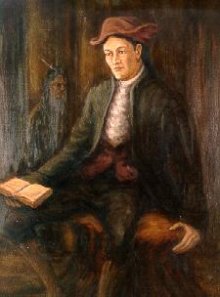The ISIS Crisis and the Myth of Progress
Speculating about the religious violence in Iraq from the comfort of my sheltered, suburban vantage point feels crass. My children are not under threat of beheading. My wife is not in danger of being raped and forced to marry a murderous terrorist. There is little chance of me being nailed to a cross or hung. But there is an important point about what is going on that can’t be missed. It has to do with the optimism of progressives and humanists, and why that optimism can’t be sustained.
One-hundred years ago last June, Archduke Franz Ferdinand was assassinated in Sarajevo, precipitating the worst war the world had ever seen. The zeitgeist of the age was summed up in the slogan, “better and better, every day.” Hegel’s dialectic theory of history was a model that predicted each era improving on the previous. Early in the war, an ancient poem by the Roman Horace was a rallying cry for supporters: Dulce Et Decorum Est. How Sweet and Honorable it is to Die for One’s Country. As casualties mounted and trench warfare plunged men and animals into depths of suffering not known since the middle ages, the poem was rewritten with an ironic and bitter tone, lamenting the monumental losses and “man’s inhumanity to man.” (Francis Schaeffer’s phrase).
One-hundred years later, I fear we are at the same place. There is a widespread belief that the inhuman acts of yesteryear are gone, banished in the light of knowledge and progress. How can progressives account for this week’s events in Iraq? “Religion.” They might say. “Fundamentalism.” But this is a fallacy which requires gross historical cherry-picking to sustain. If progressives wish to attribute brutality to only religious movements, they have yet to account for explicitly anit-religious brutality that has occurred in the few decades since Franz Ferdinand became the first casualty of World War One. Stalin, Mao Zedong, Pol-Pot and their dozens of henchmen murdered more people during the 20th Century than any religious movement in the history of mankind. If we look back further, we see that the French Revolution, based on Enlightenment principles, also ended up in a bloodbath.
The point is that we can’t put faith in any system or human institution. No political party, no philosophy, no religion or social program has the power to overcome the trump card of humankind’s evil. Paris Reidhead called us “monsters of iniquity”, and rightly so. Christians and our apathetic hypocrisy. Muslims and their lust for domination. Humanists and their deceitful arrogance. Those who claim no flag and point the finger at everyone else. We are all monsters of iniquity, each with the potential to sink to subhuman lows. How else did ordinary Germans become cruel prison guards at Auschwitz? Are the acts we are seeing today in Iraq subhuman, or simply human? They are on par with human behavior in every period of our mottled past. History shows us that humans in each generation are typically guilty of grotesque evil. This is humanity: infinite potential for good, locked into an eternal struggle with our own evil.
What is the answer? Not a political system. Not more education. Not more information or study. All of these have proven their failure to redeem our brokenness. The answer is not a policy, it’s a person. The person of Jesus, who would have us to pray for our enemies in the Islamic State. What? Yes, Jesus told us to pray for those who persecute you. Today, I would prefer to be sniping them one at a time with a .308, or mowing them down with a minigun from a helicopter. Maybe that’s what needs to happen on one level. But I don’t have that option. So in the meantime, I’ll write and pray. And urge you to pray with me. Pray for the victims and terrorists alike. And pray for our political leaders, flawed, evil and with feet of clay. They need prayer as much as the rest of us.
